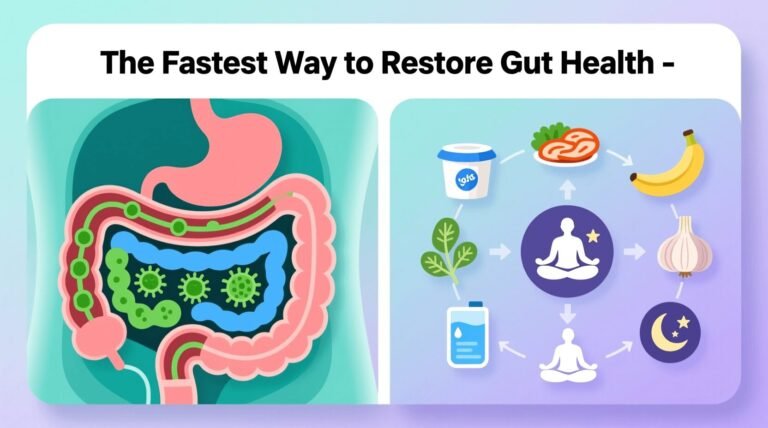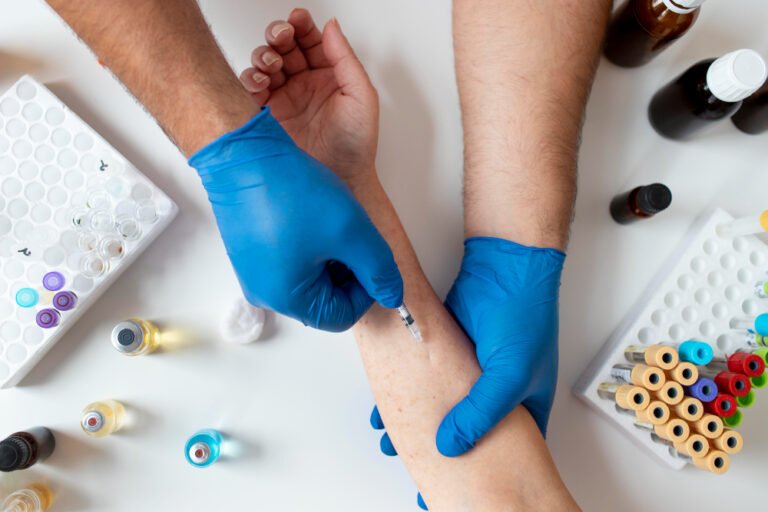How Fats Influence Testosterone Levels
Fats play a crucial role in the human body, serving as a source of energy, supporting cell structure, and being integral to hormone production. Among the various hormones, testosterone is particularly influenced by the type and amount of fats consumed. Understanding how dietary fats impact testosterone levels is vital for those looking to maintain optimal hormonal health.
What Is Testosterone Levels?
Testosterone is a steroid hormone primarily produced in the testes in men and in smaller amounts in the ovaries and adrenal glands in women. It plays a vital role in muscle growth, bone density, libido, and mood regulation. Both men and women need balanced testosterone levels for overall well-being, although men require higher levels for functions like muscle maintenance and reproductive health.
Types of Fats
Dietary fats can be broadly categorized into three types:
- Saturated Fats: Typically found in animal products like butter and red meat.
- Unsaturated Fats: Includes monounsaturated and polyunsaturated fats found in oils, nuts, and fish.
- Trans Fats: Often present in processed foods and known for their negative health impacts.
Understanding the unique roles of these fats helps in managing how they affect hormone levels like testosterone.
How Fats Influence Testosterone Levels
Fats directly influence hormone production, including testosterone. The body uses dietary fats, especially cholesterol, as building blocks for producing hormones. A diet that appropriately balances different types of fats can support healthy testosterone levels, while an imbalanced diet might suppress hormone production.
Saturated Fats and Testosterone
Saturated fats can have a positive impact on testosterone when consumed in moderation. They help provide the necessary cholesterol needed for hormone synthesis. However, excessive intake of saturated fats can lead to other health risks, such as cardiovascular issues. Thus, balance is key when incorporating these fats into a diet aimed at maintaining healthy testosterone levels.
Unsaturated Fats and Their Role
Unsaturated fats are generally considered beneficial for overall health, including hormone production:
- Monounsaturated Fats: Found in olive oil, avocados, and nuts, these fats can support testosterone production by reducing inflammation.
- Polyunsaturated Fats: Omega-3 and Omega-6 fats play different roles, with Omega-3s being known for their anti-inflammatory properties, which indirectly support testosterone levels.
Trans Fats: A Hidden Danger
Trans fats, typically found in processed foods like baked goods and fast food, are harmful to testosterone production. These fats can increase inflammation and insulin resistance, which negatively affects hormone levels. Reducing trans fat intake is critical for those aiming to maintain optimal testosterone levels.
Good vs. Bad Fats for Testosterone
Not all fats are created equal when it comes to supporting testosterone production. While saturated and unsaturated fats can be beneficial in the right amounts, trans fats should be minimized:
- Good Fats: Include sources like fish, olive oil, nuts, and seeds.
- Bad Fats: Processed foods containing hydrogenated oils and excessive amounts of red meat and dairy.
Dietary Fats and Hormone Production
Cholesterol, a type of fat, is crucial for the synthesis of testosterone. The body uses cholesterol to create hormones, making it essential to include enough healthy fats in the diet. A diet too low in fats can limit testosterone production, leading to imbalances.
Exercise, Fats, and Testosterone
A balanced diet combined with regular exercise supports overall hormonal health. High-intensity workouts, paired with an appropriate fat intake, can help maintain healthy testosterone levels. However, extremely low-fat diets might reduce energy levels and hinder workout performance, indirectly affecting testosterone.
Fat Intake for Athletes
Athletes need to pay special attention to their fat intake to ensure they maintain high energy levels and proper hormonal balance. Incorporating healthy fats while avoiding trans fats can optimize performance and help sustain adequate testosterone levels.
How to Incorporate Healthy Fats in Your Diet
Here are some recommendations for adding healthy fats to your diet:
- Daily Recommendations: Aim for 20-35% of your daily calorie intake from fats.
- Best Food Sources: Fish like salmon, olive oil, avocados, and nuts are excellent options for boosting healthy fat intake.
Common Myths About Fats and Testosterone
There are many misconceptions regarding fats and testosterone, such as the idea that all fats are bad. In reality, avoiding fats entirely can be detrimental to hormonal health. It’s about choosing the right types and amounts of fats for optimal results.
The Impact of Low-Fat Diets on Hormonal Balance
Low-fat diets can reduce the availability of cholesterol needed for testosterone production, leading to lower hormone levels. For those seeking to maintain or boost testosterone, it’s essential to include enough healthy fats in their diet.
Lifestyle Changes to Boost Testosterone
In addition to adjusting fat intake, other lifestyle changes can boost testosterone levels:
- Diet: Focus on balanced meals with sufficient healthy fats.
- Exercise: Include strength training and high-intensity workouts.
- Sleep and Stress Management: Both play crucial roles in maintaining hormonal balance.
FAQs
- Can eating too much fat lower testosterone?
- Excessive fat intake, especially from unhealthy sources, can negatively affect testosterone.
- Are trans fats harmful to testosterone?
- Yes, trans fats can reduce testosterone levels and should be minimized.
- How does Omega-3 impact testosterone levels?
- Omega-3 fats support hormone production by reducing inflammation.
- What is the role of cholesterol in testosterone production?
- Cholesterol is a precursor in the synthesis of testosterone.
- Should I avoid all saturated fats?
- No, moderate amounts of saturated fats can be beneficial.
- How quickly can dietary changes affect testosterone?
- Changes may take a few weeks to reflect in hormonal levels.







